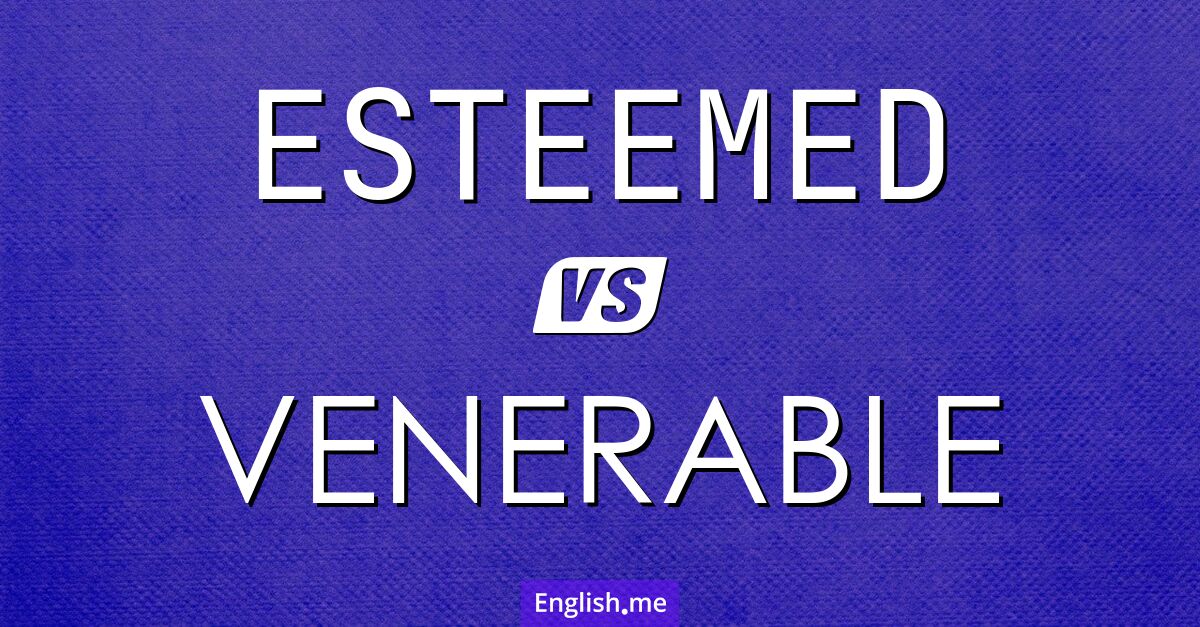"Esteemed" vs. "venerable": exploring respect and reverence
Reviewed and edited by  Lloyd Cooper 13/11/2024, 00:20
Lloyd Cooper 13/11/2024, 00:20
English.me team member

 What is similar?
What is similar?
Both "esteemed" and "venerable" are adjectives used to convey respect and admiration for a person or thing. They both suggest a high regard and acknowledge positive qualities or achievements.
 What is different?
What is different?
"Esteemed" often refers to the respect due to someone's accomplishments, abilities, or qualities, and can be used more broadly across various contexts. "Venerable" typically implies age and historical importance, suggesting respect due to long-standing significance, tradition, or moral dignity.
 Which one is more common?
Which one is more common?

 Examples of usage
Examples of usage
Esteemed- She is an esteemed member of the scientific community.
- The esteemed writer received numerous awards for his novels.
- Our guest speaker is an esteemed leader in the field of technology.
- The venerable oak tree has stood in the village for centuries.
- He was taught by a venerable professor whose lectures were legendary.
- The venerable tradition of the festival dates back to ancient times.

 English
English español
español française
française italiano
italiano deutsche
deutsche 日本語
日本語 polski
polski česky
česky svenska
svenska Türkçe
Türkçe Nederlands
Nederlands